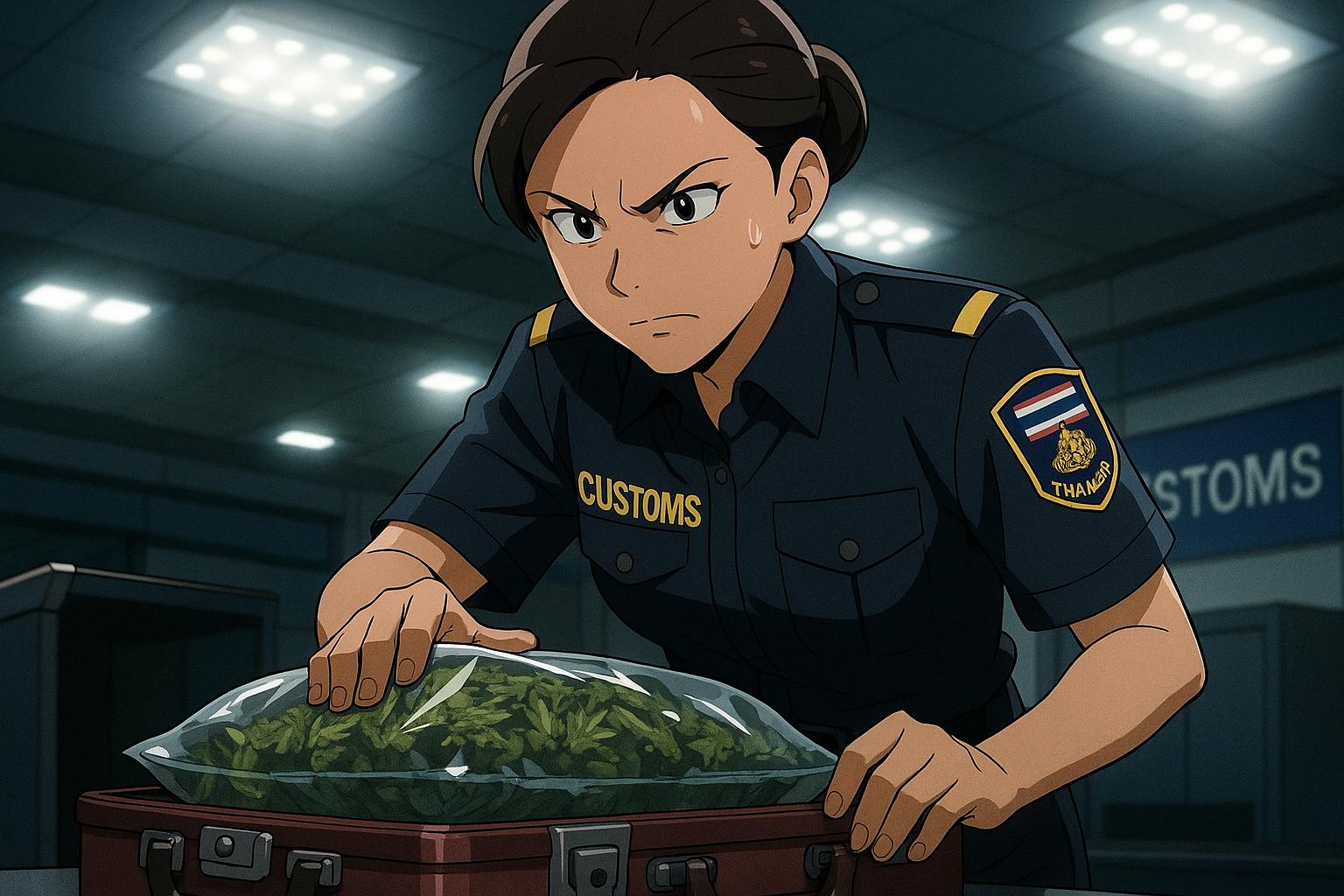Thai authorities are intensifying their crackdown on cannabis smuggling as the number of tourists attempting to transport the drug out of the country has surged dramatically in recent months. Officials have heightened inspections at airports, given that a significant portion of those apprehended are foreign nationals, predominantly from Britain and India. This uptick in smuggling cases has raised alarm bells among law enforcement and health officials, who are now responding with new regulatory measures.
The issue has reached international dimensions, highlighted by a series of arrests involving British tourists in regions as far flung as Georgia and Sri Lanka. Recent collaborations between the UK and Thai governments have led to significant cannabis seizures, with a joint operation in February resulting in the confiscation of over two tons of the drug. Furthermore, since the decriminalisation of cannabis in Thailand in 2022, there have been more than 50 arrests of British nationals within Thailand, suggesting that the allure of the country’s cannabis boom is being exploited by criminal networks.
Thailand's chaotic foray into cannabis decriminalisation was initially heralded as a progressive step for both its tourism and agricultural sectors. Once the first Asian country to relax strict cannabis laws, the country intended to foster a new market and revive its economy. However, the subsequent proliferation of cannabis dispensaries across urban centres has sparked significant public backlash. Critics point out the lack of regulatory oversight, which has rendered cannabis more accessible to minors and contributed to rising addiction concerns. As a result, the ruling Pheu Thai Party has expressed intentions to reverse the decriminalisation, though it faces pushback from coalition partners who support the status quo.
In a bid to restore control over the situation, Health Minister Somsak Thepsutin announced upcoming regulations that will require customers to present prescriptions when purchasing cannabis. He reiterated the strict legal consequences of transporting cannabis out of the country without proper permissions, a reminder of Thailand's ongoing struggle to balance a burgeoning market with public safety.
The alarming trend of cannabis smuggling also reflects broader implications for international drug trafficking networks. Instances of tourists being recruited as unwitting couriers have been documented, with some individuals promised monetary incentives for transporting large quantities of the drug. Recent operations at Koh Samui Airport, for example, revealed a sophisticated system whereby foreign tourists, enticed by the allure of Thai holidays, were enlisted to smuggle extreme amounts of cannabis, often under the false pretences of easy financial gain. In March, a significant bust led to the seizure of 375 kilograms of cannabis and the arrest of 13 foreign nationals, predominantly British, who were en route to Singapore as part of a well-organised smuggling operation.
The reality is grim, as many of these individuals face harsh legal consequences, including lengthy prison sentences under Thai law. A recent case involved a tourist caught with 38 kilograms of cannabis, underscoring the severity of enforcement in the region. This crackdown serves as a stark warning, particularly for UK travellers, who are also receiving advisories from their government urging caution against transporting cannabis from Thailand.
In a related note, authorities in both Thailand and Indonesia have seen emerging links in cannabis trafficking, with Indonesian officials reporting the discovery of a smuggling network that operated on a transcontinental scale, using increasingly inventive methods to conceal drugs in everyday items. This interconnectedness between Southeast Asian nations presents a complex battlefield in the fight against narcotics smuggling, raising the stakes for both local and international law enforcement agencies.
As Thailand finds itself at a critical crossroads, it remains to be seen how officials will navigate the multifaceted challenges posed by cannabis policy and smuggling. The drive for economic advancement must be balanced against the imperative of public health and safety, posing a dilemma that requires thoughtful, coherent regulations to secure both its tourism future and the well-being of its citizens.
Reference Map:
- Paragraph 1 – [1], [2]
- Paragraph 2 – [1], [5], [7]
- Paragraph 3 – [2], [6]
- Paragraph 4 – [4], [6]
- Paragraph 5 – [2]
- Paragraph 6 – [3], [2]
Source: Noah Wire Services
